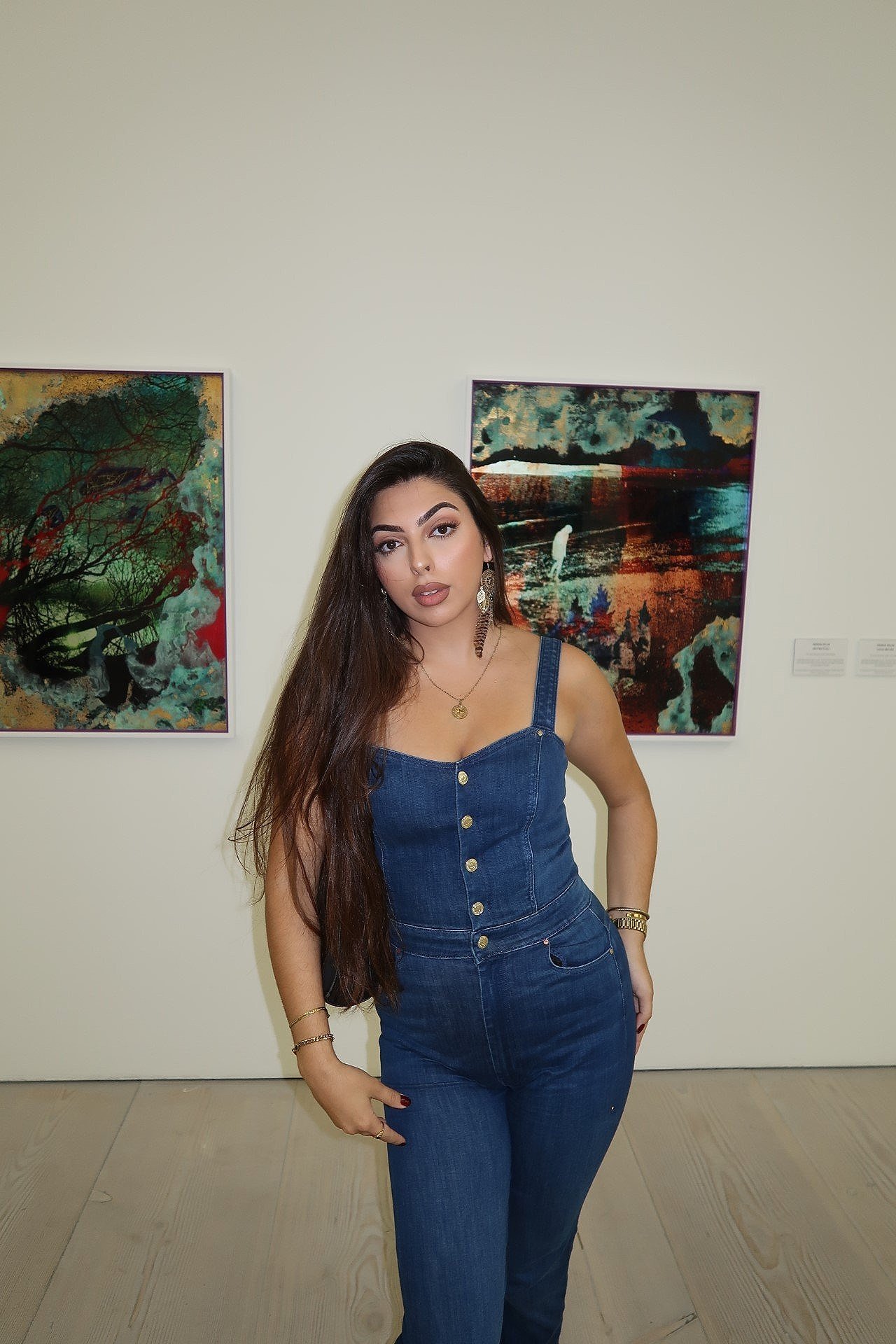Born and raised in London, Nina Ibrahimi is a British Kosovan artist that specialises in portraiture. Her work hones in on the thematic of objectification and the commodifying nature of social media with its impact on identity.
“Memories of our experiences shape our entire being. It is something that, as a society, we have put specific significance on making these memories into physical, tangible objects available to look back on. Our stream of consciousness has been deemed no longer a reliable archive for information and we have allocated and transferred the responsibility to the aptly named ‘memory card’ of cameras and phones to store these memories. However, can the daily snapshot images themselves be considered reliable representations of experience when current social media culture prompts constructed narratives for the eyes of a wider audience?
My practice explores these constructed narratives through the creation of my own memories. By employing my relatives and close friends, I attempt to create the wider known ‘candid shots’ specifically in the environment of my own home which are then later developed into large, highly detailed photo-realistic oil paintings. I use my work to question how technology has been used to capture memories with immense detail and how this has supposedly become enough of a prompt for us to remember an entire experience despite the fact that the majority of these snapshots are posed interactions and/or self-portraits. Interestingly, I have found that throughout the process of translating photography into paintings, that the work begins to transcend the value of the snapshot because of the mind to brush connection that goes into creating it.
My artistic practice also centres around the modern day and tackles the representation of women. It attempts to analyse and open the conversation of how women are presented in art. Society has placed many expectations on women in every aspect of life and we are questioned every step of the way. Social media has become a major factor in utilising comparison culture as a way of developing insecurities to feed into the patriarchal capitalist society. Therefore, while creating these constructed narratives, taking inspiration from classical techniques and combining that with the style of flash photography, I utilise my female perspective to capture women in a ‘state of being’, away from our current society full of expectations and endeavouring to present a version of feminine community indifferent to the media-fuelled culture of comparison and celebrating individuality.”

